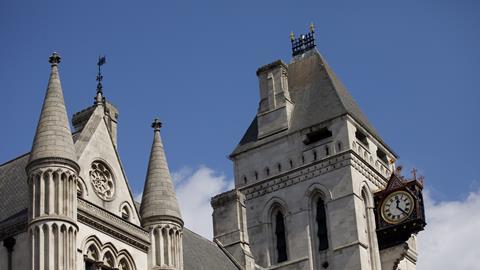The High Court has referred a barrister to the Bar Standards Board after finding a claim for judicial review to be abusive and that the lawyer responsible displayed a ‘troubling lack of knowledge’.
But Dame Victoria Sharp, in written judgment with Mr Justice Linden, gave the ‘benefit of the doubt’ to a solicitor and a barrister in a separate case, finding that their failings ‘were the result of careless errors rather than recklessness’ and to ‘mark our disapproval’ in a public judgment was sufficient.
The Divisional Court judgment rules on two referrals under the Hamid jurisdiction, part of the court’s power to regulate its own procedures and enforce the overriding duty owed by legal professionals.
The first referral arises from an extradition appeal from Westminster Magistrates Court and an application to admit as fresh evidence a psychiatric report. A judge considered the court, in granting permission to appeal the application’s refusal, to have been misled.
Jettender Arora, admitted in December 1996, a consultant solicitor who works on a self-employed basis for London firm Saunders Solicitors Limited, was instructed in connection with extradition proceedings. The judgment said Arora told the court he had ‘acted in good faith’ throughout.
The Divisional Court said referrals to the Bar Standards Board and the Solicitors Regulation Authority in relation to barrister Sian Alisha Priory, called to the bar in November 2016, and Arora was ‘not necessary in these cases’, though the application to rely on the psychiatric report was ‘deficient in any event…it was also seriously misleading’.
Read more
It added: ‘We accept that these failings were the result of careless errors rather than recklessness or any attempt to mislead the court. We also accept that at all material times Ms Priory and Mr Arora believed that it was properly arguable that the Fenyvesi test could be satisfied and that [the psychiatrists’] report should be admitted in evidence, even though they were wrong about this.
‘Both have accepted the criticisms of them, both are highly apologetic and both have unblemished professional records. There is no evidence of any previous conduct of this nature in either of their cases and we accept that this experience has been salutary for them. We have been persuaded to give them the benefit of the doubt on this occasion and that it is sufficient for us to mark our disapproval in a public judgment.’
The second referral in the judgment concerned a claim for judicial review in an extradition case after permission to appeal had been refused by the High Court. The claim for was drafted by Emil Mihai Lixandru, called to the bar in October 2016, who acted in the appeal and relied on the grounds that had previously been rejected as not being reasonably argued.
The judgment said the court would refer Lixandru to the Bar Standards Board.
It said: ‘The claim for judicial review was abusive and bound to fail…and yet Mr Lixandru drafted and filed the first claim form and assisted the RP [requested person] to file the second one and the application for an extension of time. In so doing, he advanced a case which was not properly arguable and wasted the resources of the court. On his own account, his advice to the RP was that he “did not see any chances to succeed” and he advised the RP not to claim judicial review because “it will be a waste of time”.
It continues: ‘There appears to be a troubling lack of knowledge on Mr Lixandru’s part of the regulatory framework within which the profession of which he is part operates and of the obligations contained in the BSB Handbook. Mr Lixandru’s written responses to the show cause letters did not appear to recognise that he had done anything questionable or the seriousness of his situation, and that remained the position before us: his apologies were for the most part conditional: "if you think I have done anything wrong I apologise".’



























